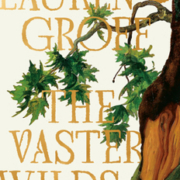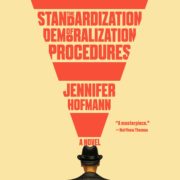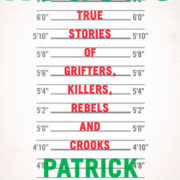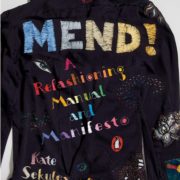Age of Revolutions: Progress and Backlash from 1600 to the Present by Fareed Zakaria
If you’re still on the prowl for this summer’s beach read, Fareed Zakaria has your back with his latest book, Age of Revolutions: Progress and Backlash from 1600 to the Present. It’s a book for those with, shall we say, divergent beach-reading preferences. Using his Harvard-trained political scientist background along with his current role as a CNN political commentator, Zakaria expertly combines both breadth and accessibility to lay out how studying five centuries of revolutions can add context to our current challenges.
This was an ambitious project, to be sure. Zakaria’s targeted audience here is wide, including both the Foreign Affairs reader and the more casual news consumer. To start, Zakaria contends that liberal democratic capitalism has been a basic good. We’re looking at classical liberalism, where democracies are not about outcomes, but norms: rule of law, individual and economic freedom, checked power. The revolutions he explores fall under a fairly traditional social science definition. They are revolutions that embodied profound structural changes: social, political, and economic. Zakaria excludes the American Revolution as it was more or less a civil war among Englishmen. After American independence, life in the former colonies looked pretty much as it had before. The Founders certainly did much to further Enlightenment thinking regarding liberalism, nevertheless, as evidenced in the Federalist Papers.
Zakaria credits the Dutch with the building of liberalism’s foundation. They rejected absolute monarchy and promoted free trade. Separating themselves from the Hapsburg Empire, a national identity was established. To themselves, they were the Dutch, distinct and unique. In 1688, the Glorious Revolution—in which a Dutchman and his wife, William and Mary, were invited to assume the English throne—solidified Parliament as the ruling power of England. In other words, a social contract was made. According to Zakaria, “the moment Dutch commercialism was wedded to English power can be seen as the moment the medieval world came to a close.”
Any discussion of revolutions must include the quintessence of failed revolutions: the French Revolution. Given the calcified state of French society in 1789, Zakaria notes that there was an early liberal movement during the nascent stages of the revolution. But when the Reign of Terror commenced, the French republic became, in reality, a dictatorship. The illiberal movements that followed were so seismic, their effects are still with us. Are you a liberal or are you a conservative? Are you a friend of the republic or are you an enemy?
This is why Zakaria’s book title is the plural of revolution. A revolution begets a counter-revolution. The French Revolution undoubtedly rattled Europe, especially within the German states. There was “a ferocious backlash to the cold rationalism of the Enlightenment, and its monstrous child, the revolution.” So, the Right turned to a new movement: Romanticism. Modernity had so shaken the elites, there was a pining for some bygone yesteryear.
The Industrial Revolution is covered along with the 19th century U.S. industrialization boom, what Zakaria calls America’s real revolution. He points out that the British government leveled the same accusations against Americans as today’s American government levels against the Chinese. Ostensibly, such practices as product dumping and intellectual property theft are not new. Nonetheless, massive change spurred massive disruption. The reaction in Europe came in the form of socialism; in the U.S., it was populism.
In the 20th century, liberalism’s greatest threat was communism. Zakaria details how the Washington Consensus encouraged developing countries to privatize and embrace the market economy via free trade. It was seen by President Reagan and Prime Minister Thatcher as a win-win: good for defeating the Soviets and good for the respective nation. Neoliberalism was so prevalent that when the Tories finally lost in the 1990s, Labour’s new leader, Tony Blair, embraced this globalist view. In fact, when Thatcher was asked to name her greatest achievement, she said, “Tony Blair.” The message was clear. Labour espousing Tory economic practices meant that, to her, the matter had been settled.
After the Soviet Union fell, political scientist Francis Fukuyama famously wrote that the event marked “the end of history.” To Fukuyama, political evolution had reached its highest state. Liberal democracy had, in essence, won. But history wasn’t quite finished, for a democratic backsliding—a move to autocracy—commenced in some countries. This shouldn’t be a surprise, says Zakaria. Market reforms may open a nation, but the foundation of a democratic system takes time to develop. Napoleon may have dismissed England as a “nation of shopkeepers.” But those shopkeepers point to a dynamic nation of staked interests. In other words, there’s a vigorous Parliament precisely because it took centuries to mature.
As the second half of Zakaria’s book moves us to the present, we see continued constructive and disruptive changes by way of modernity. He goes through the numbers, and they are striking. China and India essentially “come online.” Just think of the sheer volume of people now participating in this global economy. Additionally, technological changes continue to disrupt just as much as they contribute. Nothing new here. The printing press played a part in a century of European religious wars. In so many ways, life is now easier and safer. But it’s also more isolating. As a rather benign but consequential example, Amazon.com has replaced your local bookshop.
The “red state vs. blue state” debate is now part of the zeitgeist. But urban vs. rural seems more to the point. We have, more or less, self-sorted ourselves. This is further exacerbated when one siloes news sources. If you so choose, you don’t have to worry about working through any complex national or global issue. You can find plenty of outlets telling you that the answers are simple, and that others are to blame for the problems, always. These are business models disguised as news organizations.
Abroad, the European Union has been an economic success, yet many Europeans feel alienated from its largesse, says Zakaria. Farther east, revanchist Russia is in the throes of its own curious grappling with identity. To add further complexity, we (in the West) tend to think of Enlightenment precepts as universal. But many countries tend to view them as a “legacy of Western dominance.”
Zakaria seems to take a rather sanguine view of our global economic interdependence. He wants the reader to consider the rather long relative peace that’s been in place among the great powers. But, he of course understands the challenges. He quotes Kierkegaard: “Anxiety is the dizziness of freedom.” The book’s epigraph includes a famous Marx and Engels passage from The Communist Manifesto: “All that is solid melts into air, all that is holy is profaned…”
Anxiety and constant change are certainly a part of our modern political economy. In response, there are individuals who claim to be the vanguard of a movement to cure the ills that they have diagnosed, asserting that they are the only ones who can offer stability. Tribalism is often signaled over reality. Historically, followers of such individuals are willing to tolerate (or even advocate) realpolitik actions, thus eschewing institutions and democratic norms. In other words, such actions are illiberal. What happens when illiberal means are used in an attempt to restore some atavistic sense of national strength? Can liberal democracy survive when rules, procedures, and compromise are tossed aside? Perhaps we will see.
Reviewed by Jason Sullivan










